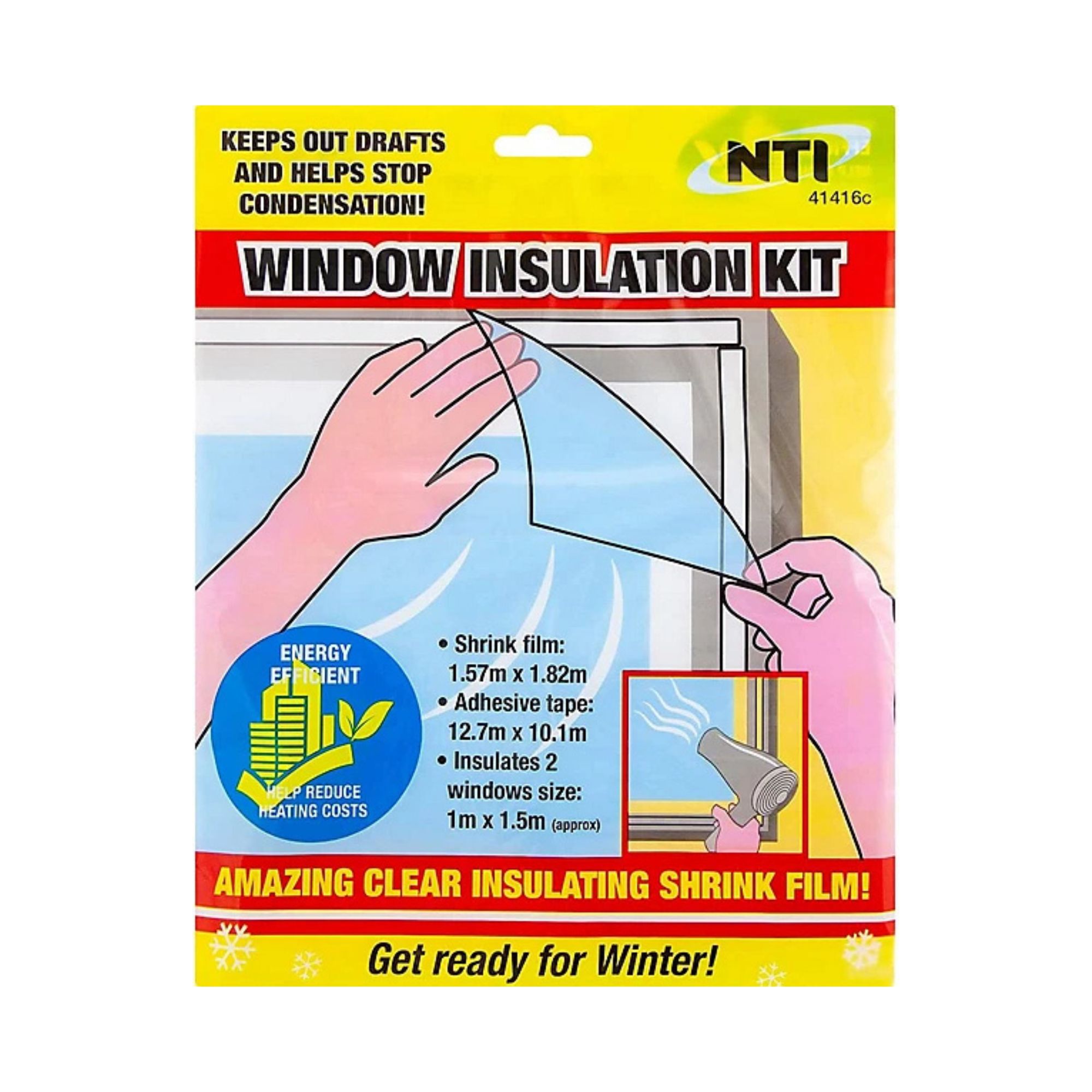Does secondary glazing film reduce window condensation? Experts say it can - and you can buy it for as little as £2.99
It’s never been easier to prevent window condensation in winter


When the temperature drops and mild autumn days are replaced with winter frosts, it’s not uncommon to wake up with condensation on windows. Before too long, this condensation can lead to mould formation, creating a dangerous, damp cycle that can negatively affect your health and home. When it comes to finding solutions that actually work, does secondary glazing film reduce condensation?
Every year, homeowners battle to keep their homes warm in winter while simultaneously trying to save energy. And while secondary glazing has been found to add an extra layer of insulation to your windows (and, ultimately, prevent heat loss), using an affordable secondary glazing film may have another unexpected perk - it supposedly helps to reduce condensation on windows.
But does secondary glazing film actually reduce window condensation? The online reviews certainly seem to point in the direction of yes, but we reached out to experts to find out if there’s any truth to the matter. Thankfully, they have good news…
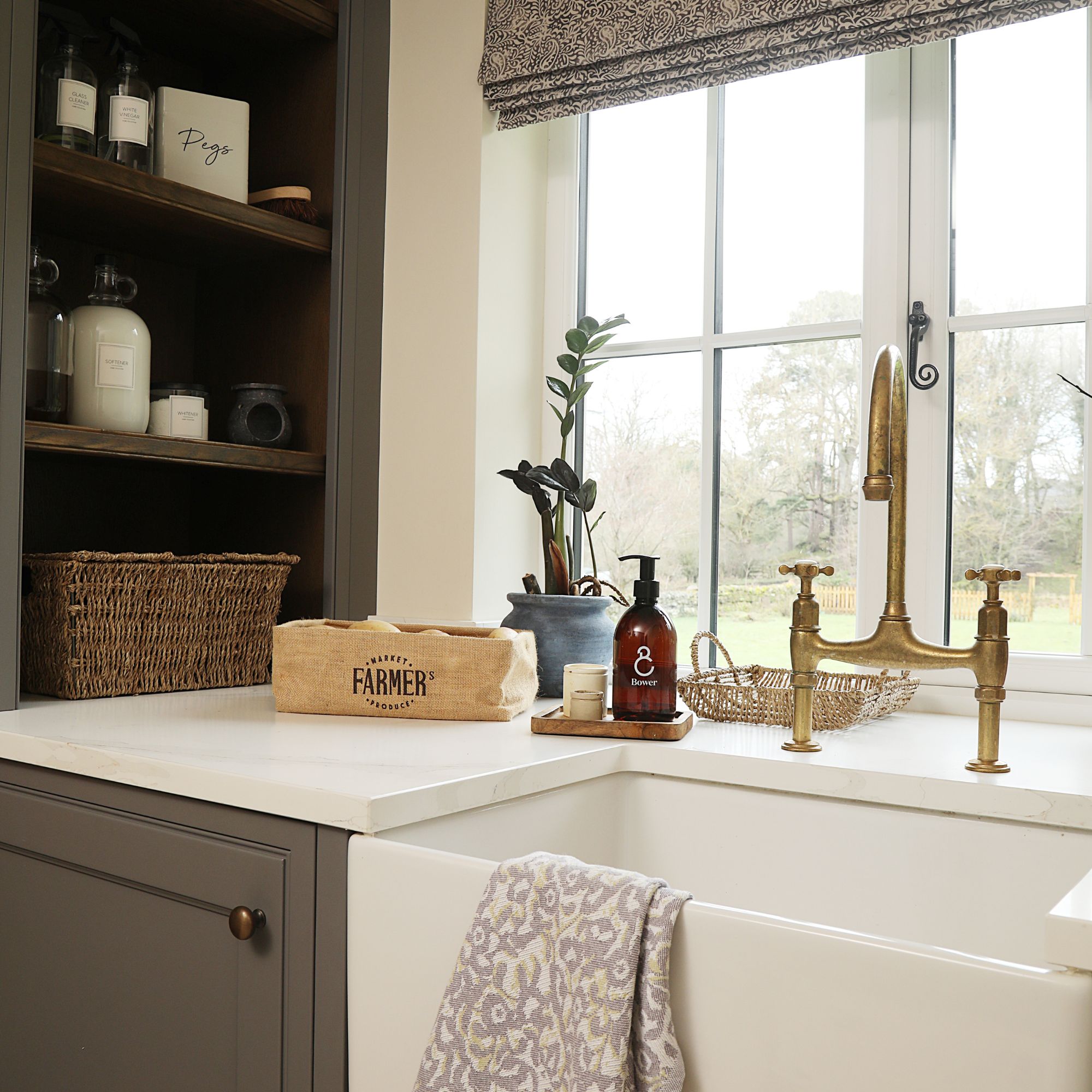
Does secondary glazing film reduce condensation?
If the affordability of secondary glazing film has already won you over, you’ll be happy to know that reducing your energy bills isn’t the only perk this product offers.
As Liam Spencer, the owner of Northallerton Glass, explains, ‘The window film will act as an additional layer of insulation on your windows when applied correctly, as it reduces heat transfer to help combat the temperature differences that lead to the formation of condensation. The film works by reflecting some of the heat from the sun but allows natural light to pass through, which can keep the indoor temperature stable, which reduces the likelihood of condensation.’
After all, condensation is normally caused when warm air in your home collides with the cold surface of the window pane. And when that window pane is covered in an extra insulating layer (i.e. not as cold), the chance of this happening is reduced.
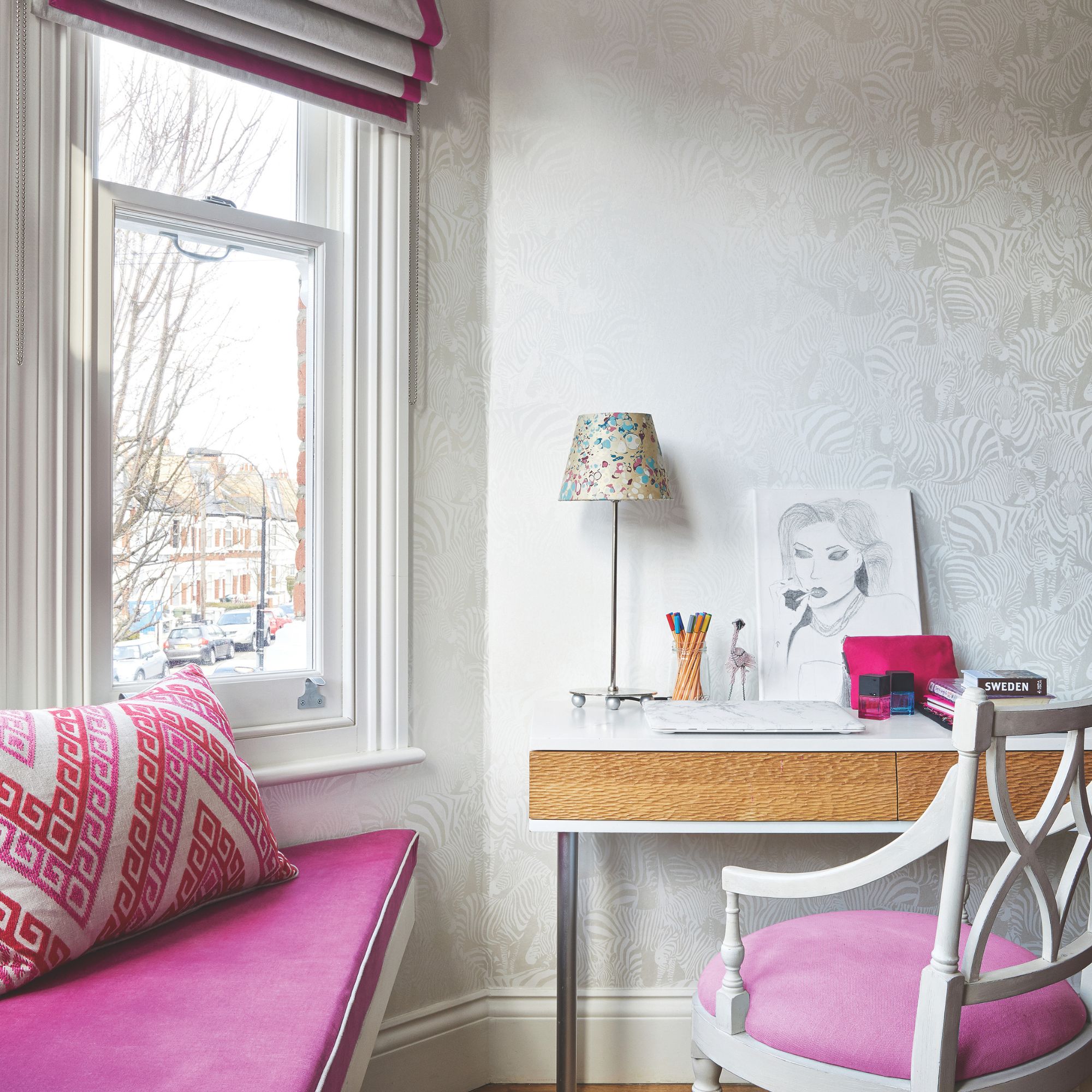
Thankfully, there are countless secondary glazing films to buy to stop condensation on windows in winter - but we do know that the Exitex Secondary Glazing Film from B&M is just £2.99 and has almost sold out due to such high demand.
Get the Ideal Home Newsletter
Sign up to our newsletter for style and decor inspiration, house makeovers, project advice and more.
But if you don't manage to snap it up in time, you can also buy it on Amazon, and the impressive reviews suggest that the experts aren't alone in thinking that secondary glazing film reduces condensation extremely effectively.
In fact, the Exitex Secondary Glazing Film has an average rating of 3.9 stars out of 5, with many happy customers giving it a whopping 5 stars - and not just for its insulating properties.
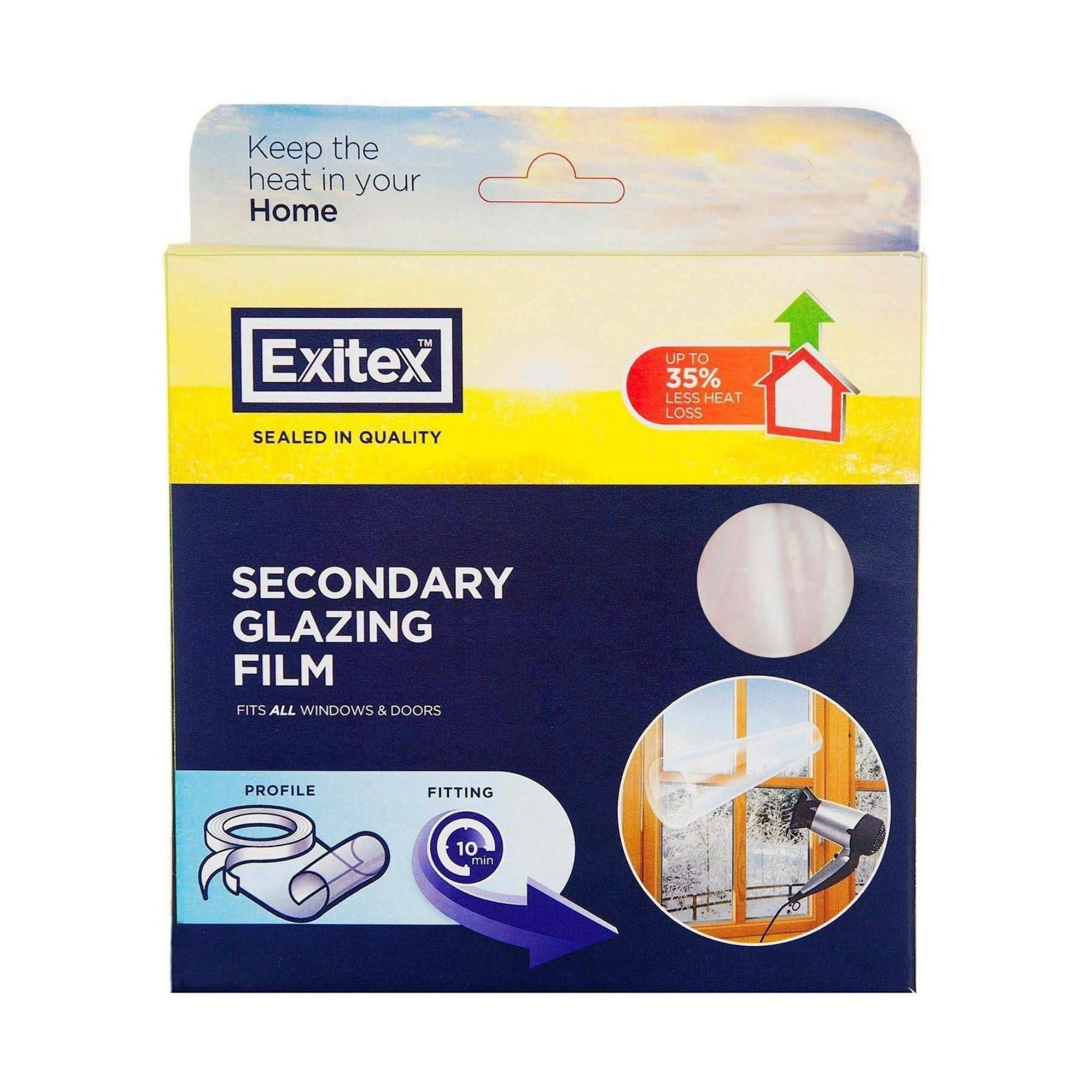
This kit comes with everything you need to apply your secondary glazing film. The only thing you'll need to do is clean your windows and grab a hair dryer.
One reviewer raved, ‘Good price, easy to apply (but you do need to be careful and do it slowly) and very effective. It's now into its second winter and no condensation on the window at all, or cold down-draughts. I used to have puddles of water on the window sill when the weather was cold, not now.’
They weren't the only one impressed with the condensation-busting power of the secondary glazing film, though. Another reviewer wrote, ‘Installed this on two single-glazed windows. Previously, they were regularly covered in condensation, and now, not a drop. Install is fairly easy if you take time but can be a bit fidgety to fit. However, does the job very well.’
And while many reviews state that the installation of this film is probably a two-person job if you want to avoid any bubbling, that’s a small price for reduced energy bills and condensation-free windows in winter. You will need to be careful in terms of how you clean your windows after installation, though.
Liam advises, ‘Only clean window films with mild detergent and a soft cloth, as harsh or abrasive cleaners can damage the film and reduce its effectiveness.’
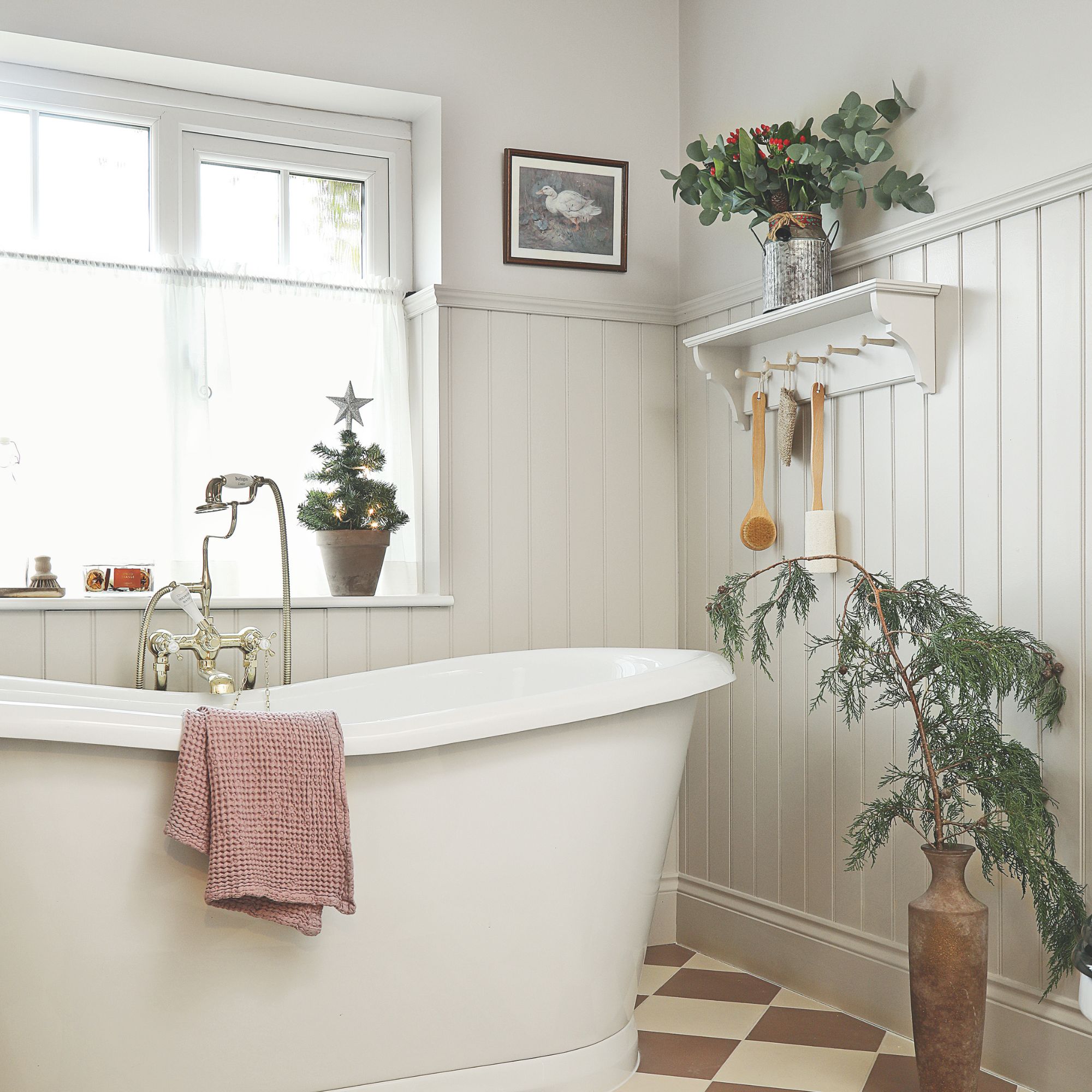
However, while secondary glazing film can certainly work hard to reduce condensation, it cannot prevent it altogether.
This is echoed by Sam Tamlyn, Managing Director at Shutter Store, who says, ‘While glazing can reduce condensation by keeping the interior glass surface slightly warmer and slowing heat transfer, it cannot entirely prevent condensation. This is because condensation primarily depends on the room's humidity levels, and if humidity remains high, it becomes difficult to eliminate moisture completely. ‘
He adds, ‘To fully stop condensation, manage indoor moisture. This is just as important as applying window insulation.’
This is especially true if your home already suffers from damp and condensation, as secondary window glazing alone won’t be able to solve your problems or deal with the extent of moisture in your home. That’s one of the reasons why the best dehumidifiers regularly top the charts as the Ideal Home team’s favourite autumn and winter appliance.
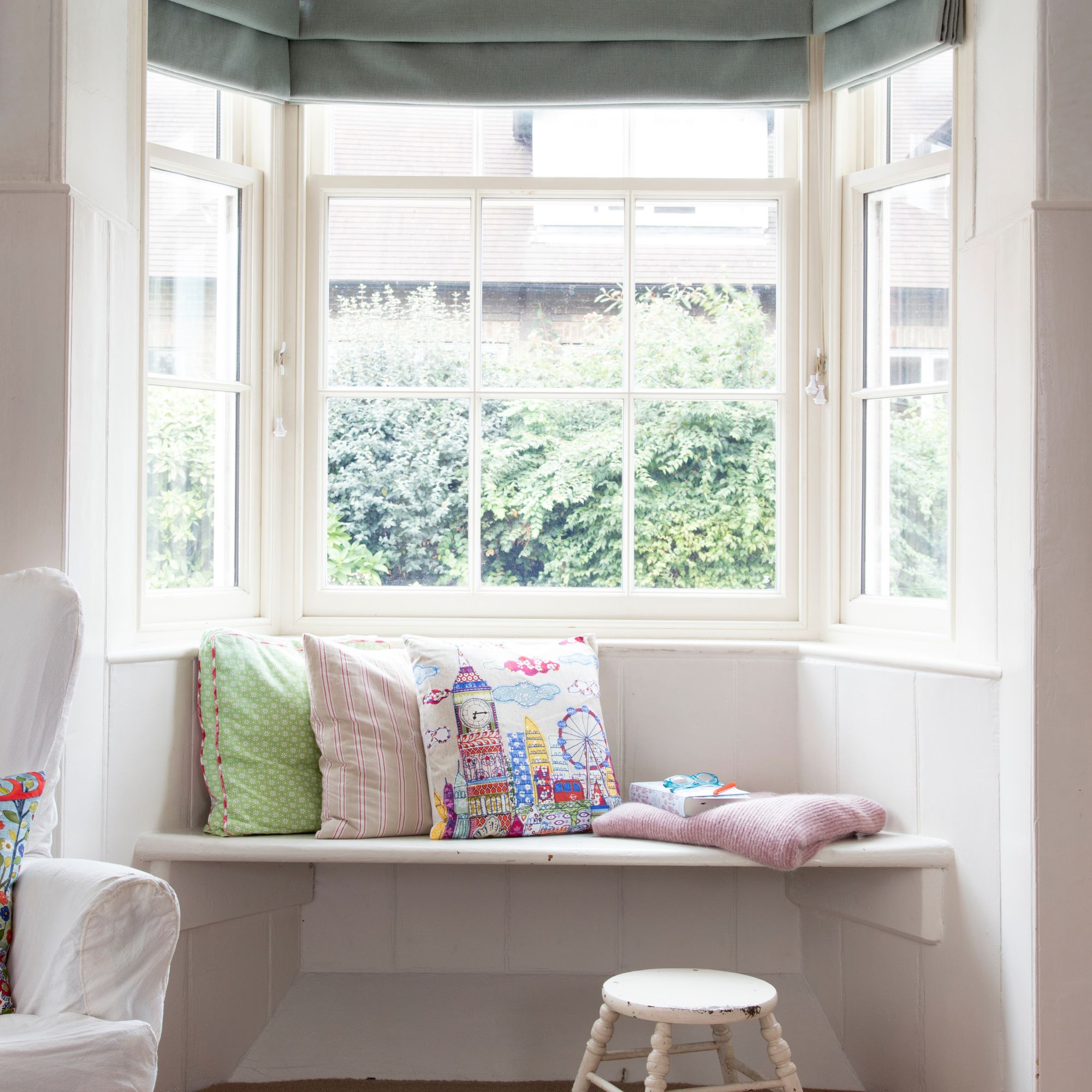
Using this trusty appliance isn’t the only thing you can do, though. Liam adds, ‘Even though window film can be effective at reducing condensation on your windows, there are other methods that can help when used alongside film. Having proper ventilation in your home will help the air to circulate and remove excess moisture, so it is important to make use of systems like extractor fans that are installed in kitchens and bathrooms.
‘A heating regime will also help to reduce temperature fluctuations that can increase the risk of condensation, and you should move furniture away from vents and radiators, as this can restrict airflow.’
In fact, experts have revealed the exact temperature you should have your heating at to reduce condensation and mould build-up in your home - so it’s best to follow these rules alongside your secondary glazing film.
If you don't manage to get your hands on the Exitex film above, then we've found three alternatives you could try instead.
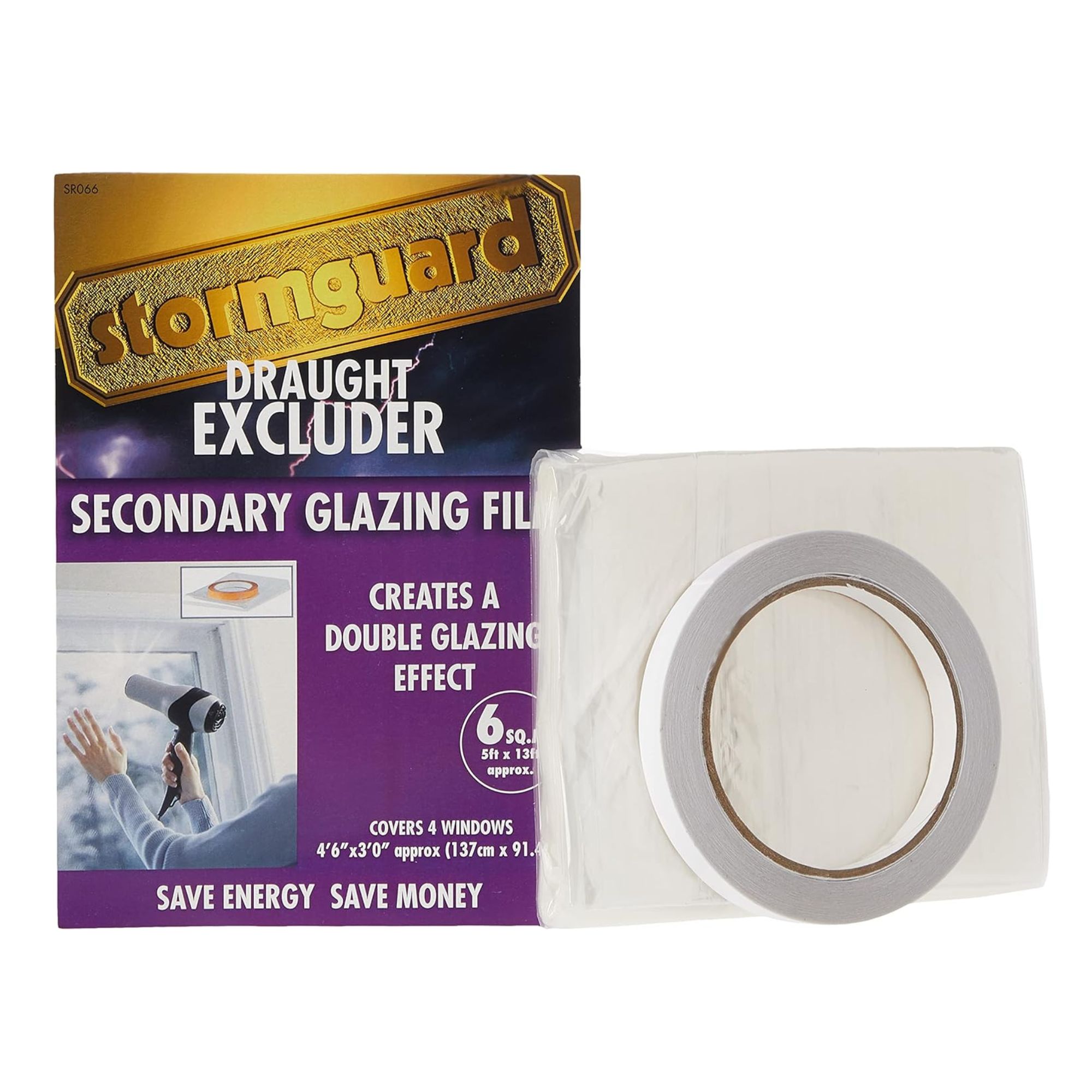
This secondary glazing film also has incredible reviews, with over 3,000 happy customers giving it an average rating of 3.9 stars out of 5. It also comes in two different sizes.
FAQs
Why do I still get condensation with double glazing?
Unfortunately, condensation is totally normal - and often a sign that your windows are working effectively to keep the cold out of your home. However, excess condensation on double-glazed windows could also be a sign that something has gone wrong or your window is damaged in some way. So, keep an eye out for:
- Damaged window seals.
- Gaps in your window frame.
- Condensation between the glass.
- Excess condensation around your windows.
If you spot any of these things, it may be worth calling in an expert to take a proper look and ensure that your windows are in top shape to survive the winter.
Will condensation between panes go away?
If you’re getting condensation between your double glazing, this is a sure sign that the seals on your windows have failed and that moisture is getting in what should be an airtight seal. If this has happened, you may need to replace the whole window, or you may be able to get the panes re-sealed.
In extreme cases, or in cases where the windows themselves are also extremely old or damaged elsewhere, you may not be able to get them re-sealed. So, it’s best to get a professional opinion.
So, will you be installing some secondary glazing film to reduce condensation on your windows this winter?

Lauren Bradbury has been the Content Editor for the House Manual section since January 2025 but worked with the team as a freelancer for a year and a half before that. She graduated with a Bachelor’s degree in English and Creative Writing from the University of Chichester in 2016. Then, she dipped her toe into the world of content writing, primarily focusing on home content. After years of agency work, she decided to take the plunge and become a full-time freelancer for online publications, including Real Homes and Ideal Home, before taking on this permanent role. Now, she spends her days searching for the best decluttering and cleaning hacks and creating handy how-to guides for homeowners and renters alike, as well as testing vacuums as part of her role as the Ideal Home Certified Expert in Training on Vacuums, having spent over 110 hours testing different vacuum models to date!
-
 5 signs you’ve taken decluttering too far — and how you can pull yourself back, according to organisation experts
5 signs you’ve taken decluttering too far — and how you can pull yourself back, according to organisation expertsYou might have to start resisting the urge to purge
By Lauren Bradbury
-
 What is the Party Wall Act 3m rule and is it something you should be worried about? This is what the experts say
What is the Party Wall Act 3m rule and is it something you should be worried about? This is what the experts sayDon't get caught off-guard by the Party Wall Act 3m rule — our expert guide is a must-read
By Natasha Brinsmead
-
 Shoppers can’t get enough of The Range’s lemon tree, but I’ve found an even cheaper bestseller at B&Q - it’s perfect for a Mediterranean look
Shoppers can’t get enough of The Range’s lemon tree, but I’ve found an even cheaper bestseller at B&Q - it’s perfect for a Mediterranean lookWelcome the summer with this glorious fruit tree
By Kezia Reynolds
-
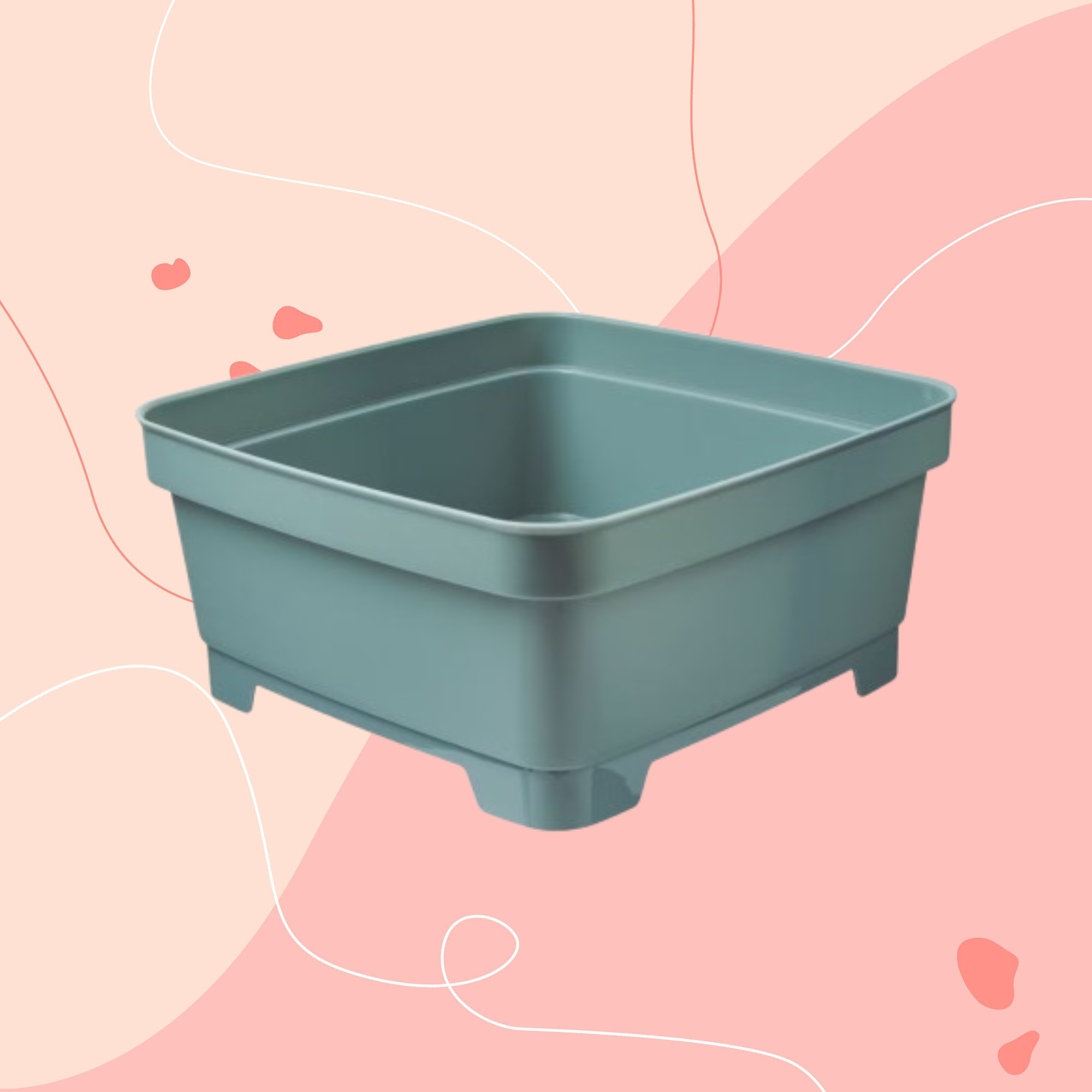 Aldi is releasing a budget alternative to the cult Joseph Joseph washing up bowl – it’s just £4.99
Aldi is releasing a budget alternative to the cult Joseph Joseph washing up bowl – it’s just £4.99The Joseph Joseph washing up bowl is an Ideal Home favourite - now we can't wait to try Aldi's alternative
By Kezia Reynolds
-
 I just bought my first home, and this £10 buy was the very first thing I bought for it to make it feel warmer and secure
I just bought my first home, and this £10 buy was the very first thing I bought for it to make it feel warmer and secureIf I did it all again, this would still be my very first buy
By Rebecca Knight
-
 It’s normally impossible to find a Dyson vacuum for under £250 — but QVC has slashed the price of their bestselling models for a limited time
It’s normally impossible to find a Dyson vacuum for under £250 — but QVC has slashed the price of their bestselling models for a limited timeRun don’t walk to pick up the brand’s bestselling model for under £230 before it sells out
By Lauren Bradbury
-
 Catherine Zeta-Jones has revealed the cleaning product she swears by to keep her home fresh - and it’s just £8 on Amazon
Catherine Zeta-Jones has revealed the cleaning product she swears by to keep her home fresh - and it’s just £8 on Amazon'I use it on my counters. I use it on my walls. I use it on my doors. When I smell it, I know my house is clean.'
By Kezia Reynolds
-
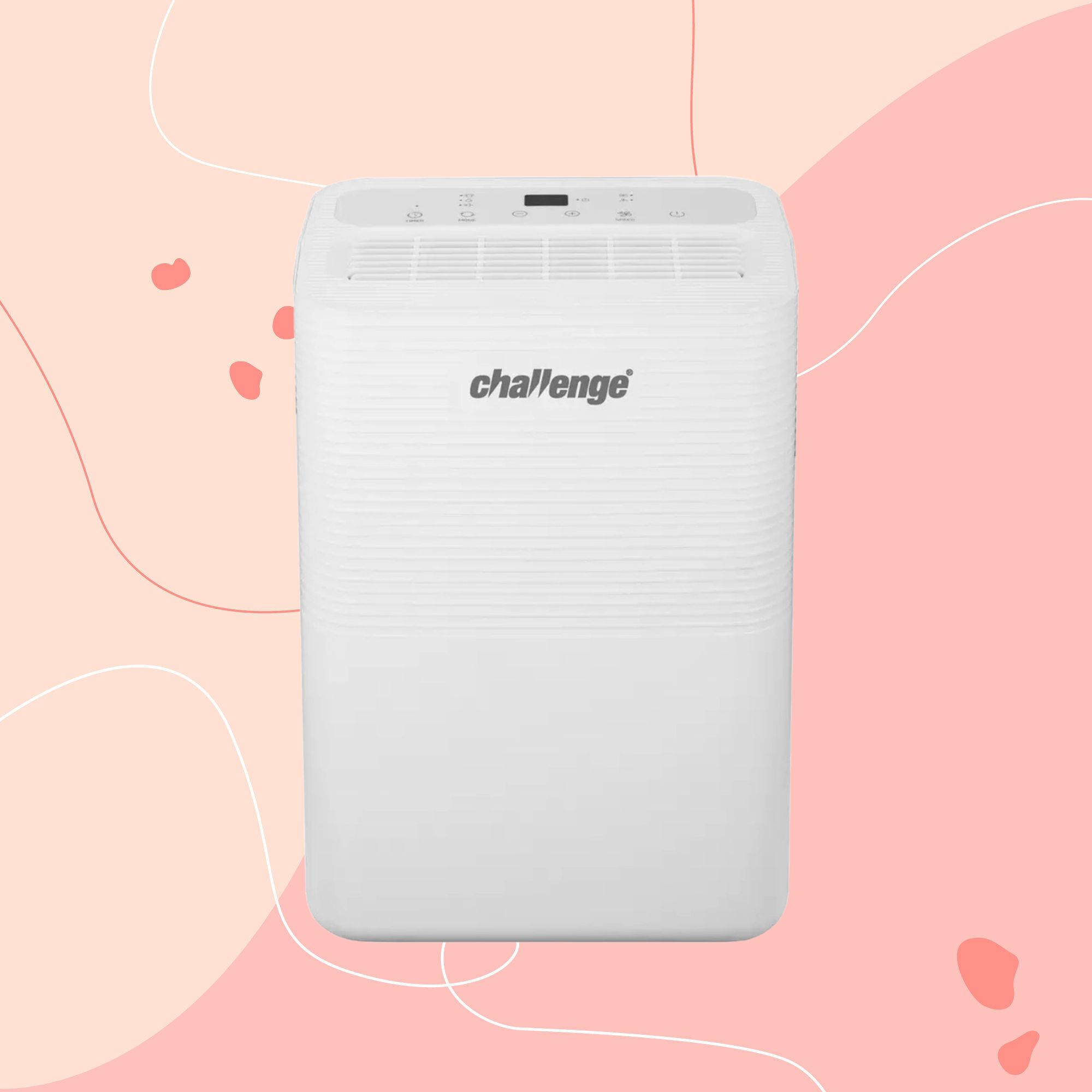 I tested the 12L Challenge dehumidifier in my damp Victorian home over winter — I haven’t spotted any signs of mould for the first time in five years
I tested the 12L Challenge dehumidifier in my damp Victorian home over winter — I haven’t spotted any signs of mould for the first time in five yearsThe Challenge 12L dehumidifier doesn’t have too many bells and whistles, but I can already see the difference it’s made to my damp home
By Lauren Bradbury
-
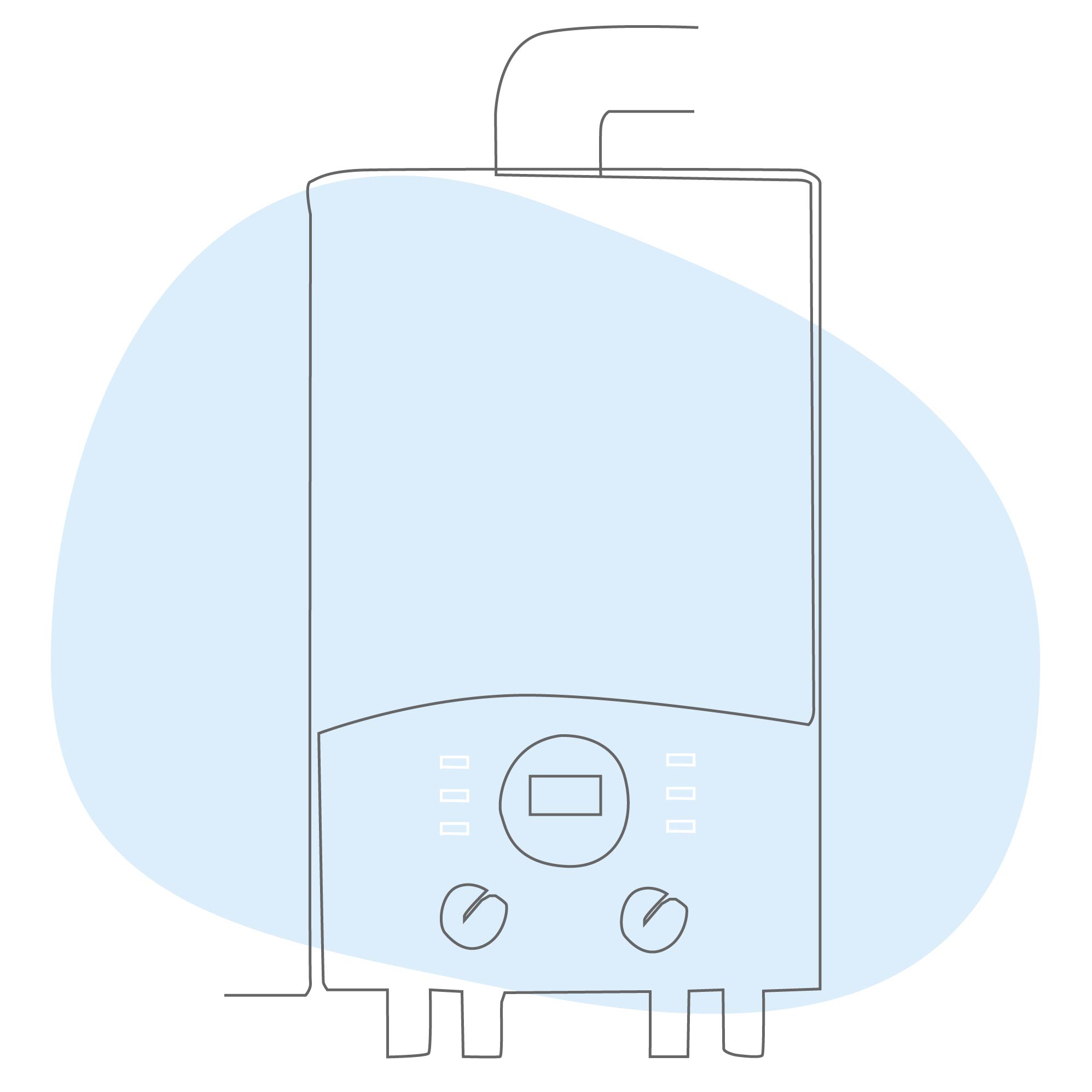 What is boiler flow temperature? Heating experts urge you to check yours now as you could be overpaying on your energy bills
What is boiler flow temperature? Heating experts urge you to check yours now as you could be overpaying on your energy billsTurning this little-known number down just a few degrees can result in some serious savings
By Lauren Bradbury
-
 Stacey Solomon has shared 5 nifty wardrobe storage hacks to make getting ready in the morning easier — and they're genius
Stacey Solomon has shared 5 nifty wardrobe storage hacks to make getting ready in the morning easier — and they're geniusThese five wardrobe storage hacks are a gamechanger
By Katie Sims
-
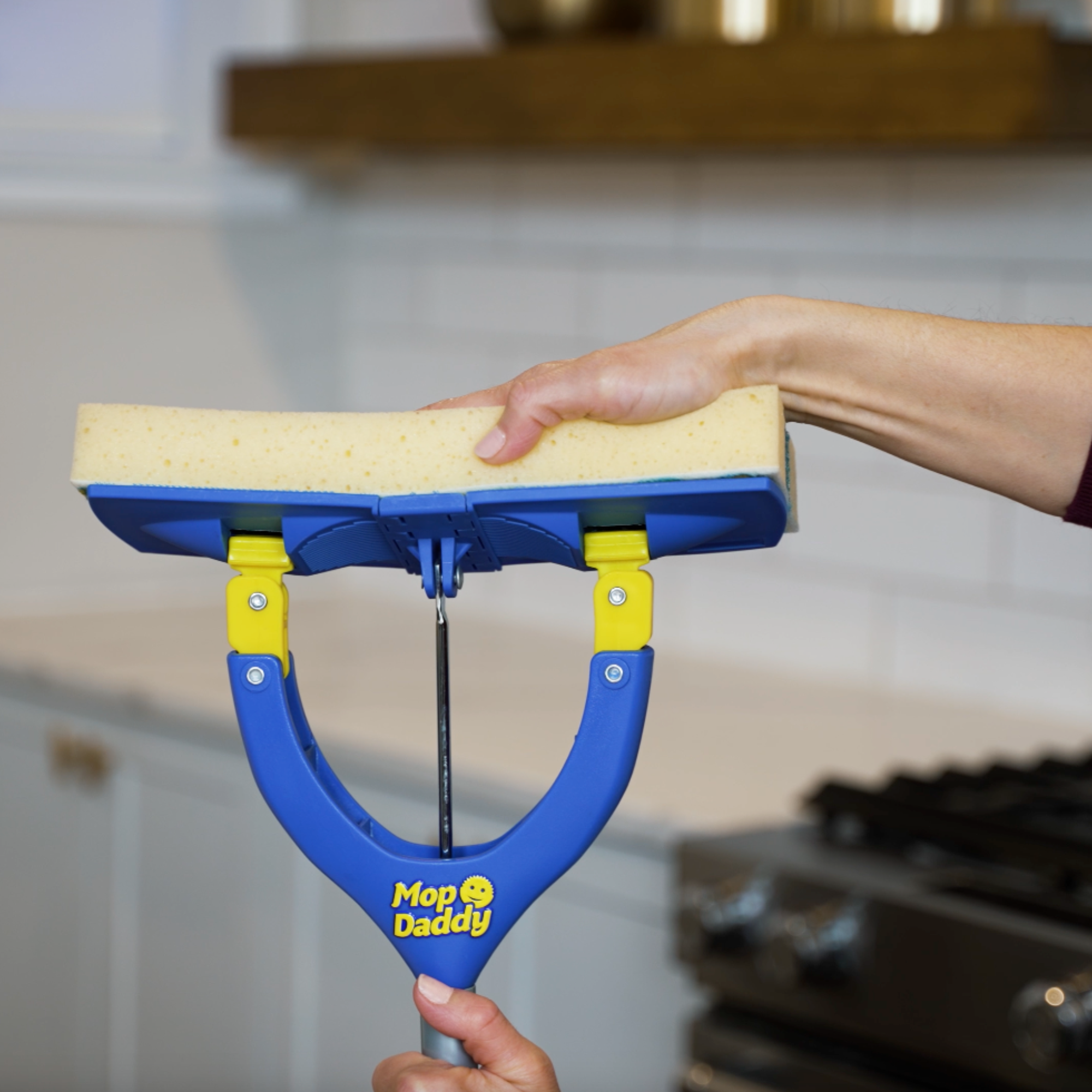 Cult cleaning brand Scrub Daddy has just launched a brand new butterfly mop — could it be the ultimate solution for banishing stubborn marks on your floor?
Cult cleaning brand Scrub Daddy has just launched a brand new butterfly mop — could it be the ultimate solution for banishing stubborn marks on your floor?We're obsessed with all things Scrub Daddy
By Kezia Reynolds

